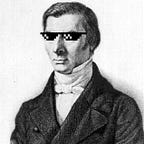We need honesty in politics!
This is how we do it
- In the lie of 2013, Obama said, “If you like your plan, you can keep your plan.”
- He also said it would be, “A system where we’re going to work with your employers to lower your premiums…$2500.” (Premiums in 2008 and 2016)
- Pelosi infamously said, “But we have to pass the bill so that you can see what’s in it.” (I still can’t believe she actually said that and that it passed anyway).
- Jonathan Gruber blatantly admitted to misleading the American people.
- George W Bush pushed convinced America to invade Iraq partly over a WMD program that didn’t exist and that the CIA knew didn’t exist.
- Not a legal issue, but, “I did not have sexual relations with that woman.”
- Gulf War I happened, in large part, as a result of false testimony given before Congress.
We know they’re all liars
I doubt I could find a single person who really trusted politicians, as a class. In fact, it behooves public figures to spout off any thought that supports their case. By the time the truth can catch up, they’ll be ten lies down the road. Even when they get caught, they can meekly modify their position, all based on another lie, and it will be weeks before the truth comes out, assuming society talks about it at all.
When the world writes law, it happens within a system that discourages an actual contest of ideas.
The problem is systemic, not personal. The way we currently write law rewards those who are dishonest and marginalizes the principled, regardless of their political views. Think about that. It does not matter what political philosophy you prefer. When America (and the world, really) makes law, it happens within a system that discourages an actual contest of ideas.
If there are tools that existed to help minimize this dishonesty, I think that would be a major step forward in social policy. If we can begin to have discussions of law based on truth, and not on backroom deals and delusions of grandeur, I believe that we will usher in a new age of justice.
What if we could throw the liars in jail?
I’ve written already written a brief piece on common law that I recommend checking out before proceeding. In it, I mention that an advantage of the system is that it forces laws to be enacted based on sound reasoning. This desperately needs more attention.
Courts levy a significant incentive for honesty, perjury. This penalty has two relevant consequences for those who lie. First, they go to jail. Second, the case is brought up for review. Lying can only hurt the eventual ruling.
As importantly, there are intense standards placed on the courts to limit conflicts of interest and tampering. Judges are expected to recuse themselves if they have any significant relationship with either of the parties involved in the case. Juries are selected at random, and even the media is expected to leave them alone. If tampering occurs, the ruling is overturned. If a conflict of interest is revealed, a new trial is at least considered.
Combined, enforcing honesty and standards of impartiality means that decisions passed down by courts of law are of the highest quality possible. Relative to civil law, common law exceeds at answering questions of morality based on reason and evidence, instead of insider trading.
This is a major improvement, and one that society needs to consider taking advantage of.
